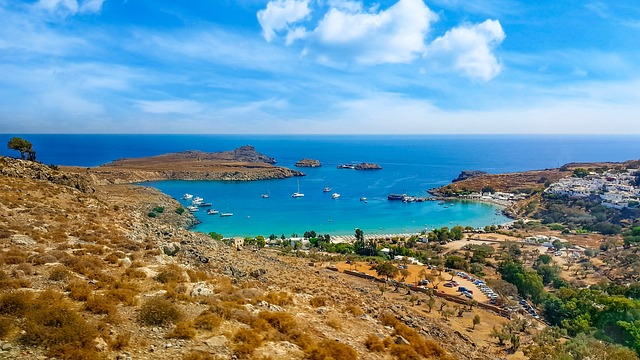Rhode Island's child protection laws focus on prevention and support, with the DCF leading enforcement and specialized units providing medical care and legal advocacy. European systems stand out for their holistic approach, prioritizing early identification, comprehensive support, and victim rehabilitation over legal interventions. The US system, including child sexual assault lawyers in Rhode Island, lags behind Europe due to time-consuming lawsuits and a lack of state-led initiatives. Adopting best practices from European models can improve the response to child sexual assault in Rhode Island.
“In Pawtucket, Rhode Island, a detailed comparison of child protection systems reveals contrasting approaches between the US and Europe. This analysis delves into the legal frameworks governing child welfare, focusing on Rhode Island’s regulations and their contrast with European models. Key features and effectiveness of European systems are examined, alongside a comparative study of the US model, highlighting potential gaps. Furthermore, the article explores challenges and successes in handling child sexual assault cases, emphasizing the role of experienced child sexual assault lawyers in Rhode Island.”
Understanding Child Protection Laws in Rhode Island

Child protection laws in Rhode Island, like many states across the US, are designed to safeguard minors from various forms of abuse and exploitation, including child sexual assault. The state has specific legislation in place to address these issues, with provisions for reporting suspected cases, investigating allegations, and providing support services to victims. Child sexual assault lawyers in Rhode Island play a crucial role in navigating these legal systems, ensuring that victims’ rights are protected and perpetrators are held accountable.
In terms of enforcement, Rhode Island’s Department of Children and Families (DCF) is responsible for receiving and investigating reports of child abuse and neglect, including sexual abuse. The state also has specialized units dedicated to handling cases involving trauma and sexual violence against children, offering comprehensive services ranging from medical care to legal advocacy. This multifaceted approach aims to create a supportive environment for victims while striving for justice and accountability through the legal system.
European Models: Key Features and Effectiveness

European models of child protection systems are renowned for their holistic approach, focusing on prevention, education, and comprehensive support services. These systems prioritize community involvement and often employ specialized professionals like social workers, psychologists, and healthcare providers to address various aspects of child well-being. Unlike the US system, which heavily relies on legal interventions, European models emphasize early identification and intervention strategies to mitigate risks before they escalate.
The effectiveness of these models is evident in lower rates of child abuse and neglect cases across Europe. Their success lies in the integration of services, where healthcare, education, and social welfare collaborate seamlessly. This coordinated effort ensures that children and families receive tailored support, fostering a safer and more nurturing environment. Moreover, European countries have seen improvements in outcomes related to child sexual assault cases, partly attributed to their robust reporting mechanisms and specialized legal frameworks, often assisted by child sexual assault lawyers Rhode Island, which ensure victims’ rights and needs are addressed appropriately.
US System: Comparison and Potential Gaps

The United States’ child protection system, while robust in certain aspects, presents several notable gaps compared to its European counterparts. One critical area is the response to child sexual assault cases. The US legal system often relies heavily on individual lawsuits filed by victims or their families against alleged perpetrators and the institutions involved. This approach can be time-consuming and financially burdensome for both victims and the justice system, as it requires extensive evidence collection and legal battles. In contrast, many European nations have implemented comprehensive, state-led initiatives, including dedicated child sexual assault task forces and mandatory reporting laws, to proactively address these crimes.
Additionally, the US system’s focus on punishment and incarceration may not align with the holistic approach seen in Europe, where rehabilitation and support services for both victims and perpetrators are prioritized. The presence of specialized courts and non-profit organizations in European countries dedicated to child protection further enhances their ability to handle such cases effectively. Rhode Island, known for its resilient communities, can learn from these international models to improve its response to child sexual assault and strengthen the overall well-being of its young residents. Considering the expertise of child sexual assault lawyers in Rhode Island and beyond, adopting best practices from Europe could lead to more efficient and compassionate protection measures.
Challenges and Successes in Child Sexual Assault Cases

Navigating child sexual assault cases presents unique challenges, and the differences between the US and European models of child protection are no exception. In the United States, particularly in states like Rhode Island where dedicated child sexual assault lawyers operate, one significant challenge is the often lengthy process of gathering evidence and interviewing witnesses due to stringent legal requirements for admissibility. This can be especially difficult in cases involving young victims who may lack the capacity to provide detailed testimony.
However, American systems have achieved notable successes. The presence of specialized prosecutors and police units focused on child sexual abuse cases has led to improved conviction rates. Additionally, initiatives like training programs for first responders and mandatory reporting laws have fostered a more supportive environment for survivors. In contrast, European models often emphasize restorative justice approaches, focusing on rehabilitation rather than strict punishment, which can offer unique benefits but may present different challenges in terms of legal advocacy for victims.






